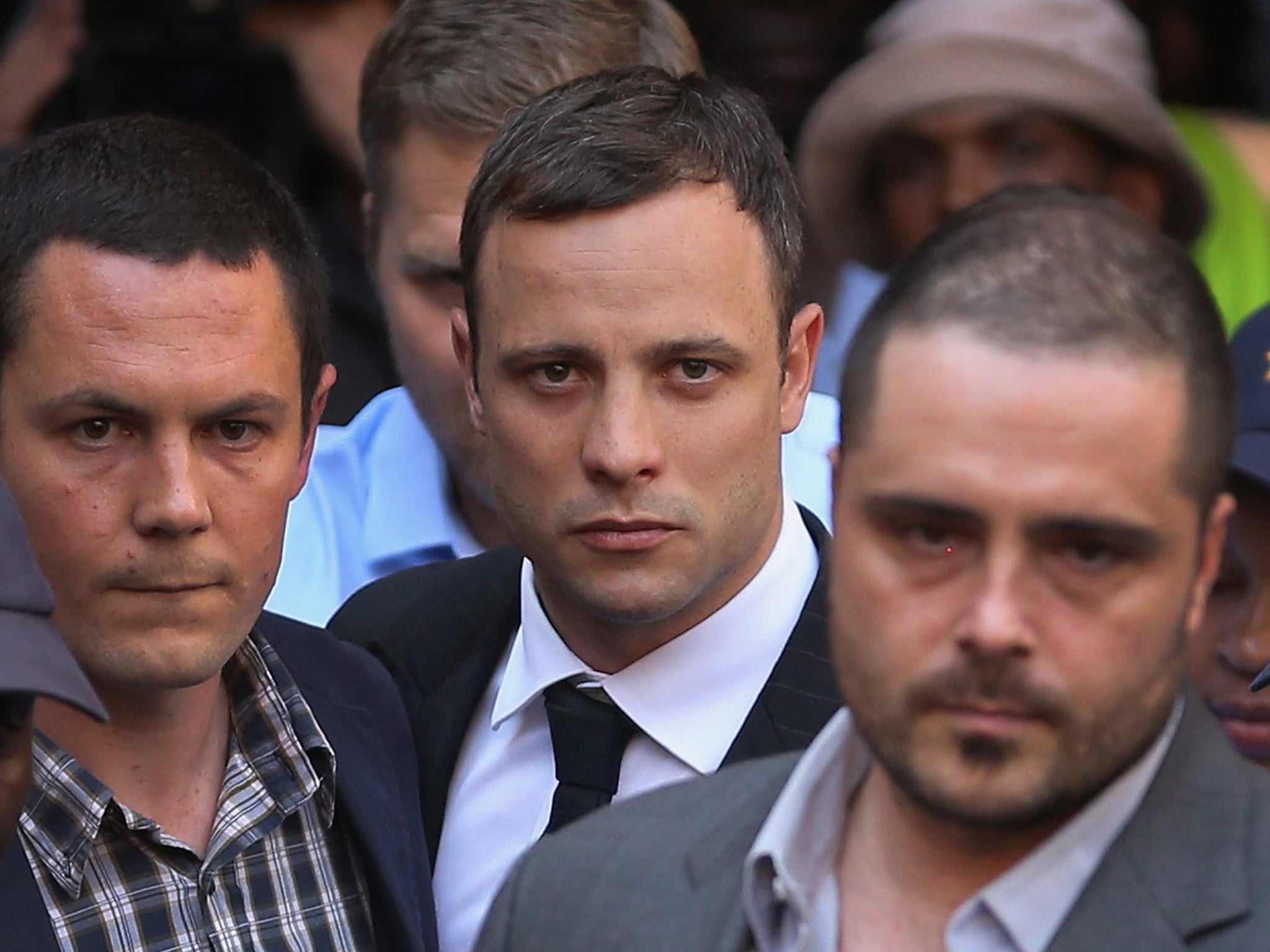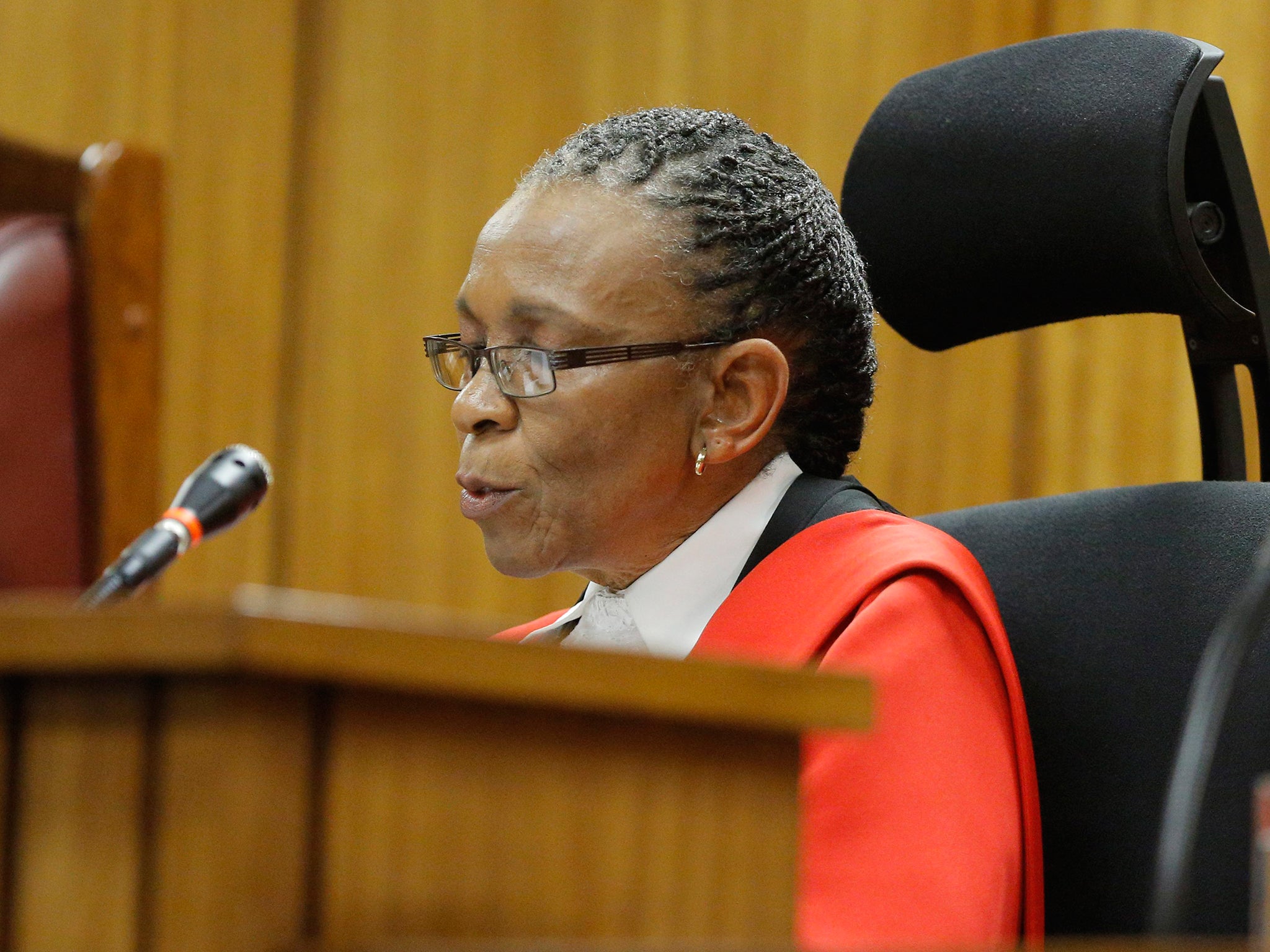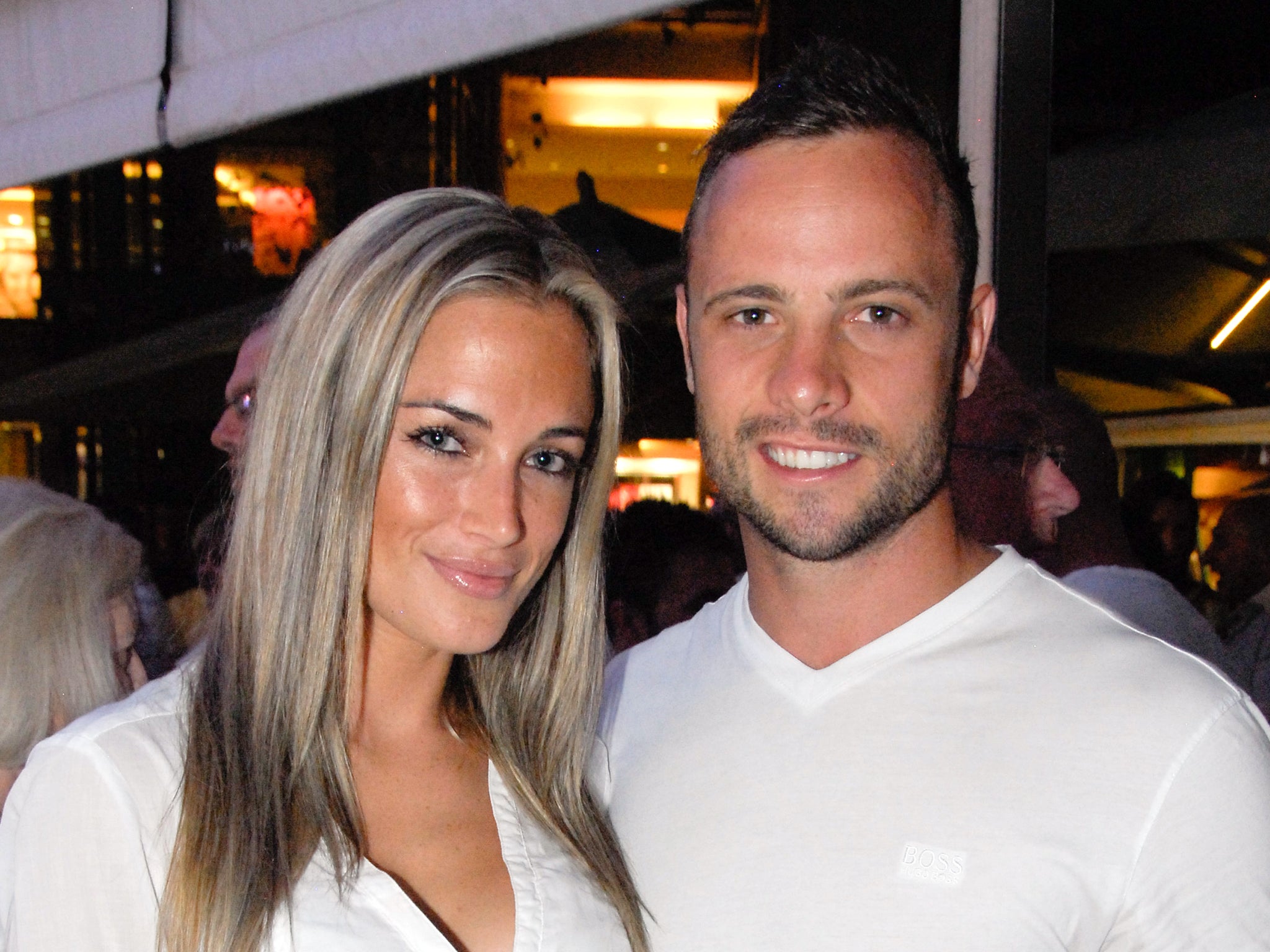Oscar Pistorius guilty: Found guilty of culpable homicide, athlete is led – briefly – to cells
Pistorius awaits sentencing, but how far has justice been served by media circus of a trial?

Your support helps us to tell the story
From reproductive rights to climate change to Big Tech, The Independent is on the ground when the story is developing. Whether it's investigating the financials of Elon Musk's pro-Trump PAC or producing our latest documentary, 'The A Word', which shines a light on the American women fighting for reproductive rights, we know how important it is to parse out the facts from the messaging.
At such a critical moment in US history, we need reporters on the ground. Your donation allows us to keep sending journalists to speak to both sides of the story.
The Independent is trusted by Americans across the entire political spectrum. And unlike many other quality news outlets, we choose not to lock Americans out of our reporting and analysis with paywalls. We believe quality journalism should be available to everyone, paid for by those who can afford it.
Your support makes all the difference.Oscar Pistorius spent around an hour and half down in the cells. Guilty not of murder, but of culpable homicide, his right to bail had expired, and he was led down the steps of the court at lunch yesterday, rather than outside into the sunshine.
It was the first time he had been locked up in a year and a half. Not since he had sat in the full glare of the television cameras last February – while his bail application was fought over – had he known incarceration. And in the end, last night, he drove back to his Uncle Arnold’s house in the suburbs, as he has done at the end of every day in court in the last six months. Now convicted of firing four lethal gun shots through a door and into a tiny room he knew someone was in, of “negligence”, of the “use of excessive force”, for another month at least, he is still ostensibly a free man.
“There are no victors,” Arnold Pistorius said, in a short statement afterwards, in the courtroom where his family have now spent so much time. “Although it won’t bring Reeva back, our hearts go out to her family and friends.”
The Paralympic athlete was found guilty of culpable homicide for the fatal shooting of his girlfriend Reeva Steenkamp and bailed ahead of sentencing. The guilty verdict came a day after the judge Thokozile Masipa cleared him of murder. Pistorius could receive anything from 15 years in prison to a suspended sentence – potentially meaning he could compete again as an athlete.
On Valentine’s Day last year, when the pictures of Pistorius being led in to the back of a police van, the question seemed simple enough. Did he know it was Reeva behind the door? Matters have since become rather more complicated, but to that question, there is now an answer. No. The state, in the form of the prosecutor Gerrie Nel, could not provide any proof to the contrary.
Judge Masipa’s conclusion had been made plain the day before, but on Friday morning, Pistorius was asked to stand up to be told as much. And while the tears from the friends and family of his deceased girlfriend grew louder, Judge Thokozile Masipa told him: “The unanimous decision of this court is the following. The accused is found not guilty [of murder] and is discharged. Instead he is found of guilty of culpable homicide.”
On the three lesser gun charges, Pistorius was found not guilty on two counts, and guilty on one. On the charge of firing his gun through the sunroof of a car in 2010, the proof was not there. On the unlicensed ammunition found in the safe at his home – which he said had belonged to his father, who did have a licence for it – Judge Masipa said there was no “criminal intention” to his possession of it. But on the charge of unknowingly or accidentally discharging a firearm under the table in a restaurant just a few weeks before he shot and killed Ms Steenkamp, there was clear evidence of negligence and he was found guilty.

The trial in Pretoria has sparked a fresh debate on gun laws and domestic violence in South Africa. Adèle Kirsten of the campaign group Gun Free South Africa, told The Independent: “The trial has made people rethink guns, and realise how lethal they are. They now think about how easy it is to pull the trigger and regret the outcome. If we look at this case, if there wasn’t a gun in the home she [Reeva Steenkamp] would have stood a chance of surviving. That’s the difference between guns and other weapons.”
Rebecca Peters, former director of the International Action Network on Small Arms, added: “Whether the man who fired four shots through the door was acting reasonably or unreasonably, whether he was affected by instincts, emotions or perceptions – analysis after the fact cannot change the ugly reality. She was yet another woman shot dead at home, in the place where she was most entitled to feel safe, by the man who should have been most committed to her well-being.”

Technically, the trial is over, even though there is already some indication the state may have grounds for appeal. Some South African lawyers have been quick to make public their view that Pistorius should have foreseen that his actions could kill, and that this is a case is murder dolus eventualis – a murder in which a person should have foreseen the possibility that someone could be killed, but went ahead anyway.
In any case, the circus will return on 13 October for the sentencing hearing, where Barry Roux will fight once more to secure the minimum sentence for his client, who has, we learnt yesterday, sold all three of his houses to meet his legal costs.
In general, South African public opinion seems unsatisfied by the conclusion it has been given. The newspaper headlines talk of Oscar’s “great escape”, even though a lengthy prison sentence “seems likely”. There is no minimum sentence for culpable homicide, our equivalent of manslaughter. There will be mitigating factors, but it is not unreasonable to assume Pistorius’s actions are toward the top end of that range. The maximum sentence is 15 years in jail.
As South Africa, and the wider watching world, is finding out, real-life court cases rarely have a satisfactory conclusion. Pistorius had motivation to be the “untruthful witness” Judge Masipa described. But he will know untruthfulness will not help him in the very last act to come.
Subscribe to Independent Premium to bookmark this article
Want to bookmark your favourite articles and stories to read or reference later? Start your Independent Premium subscription today.